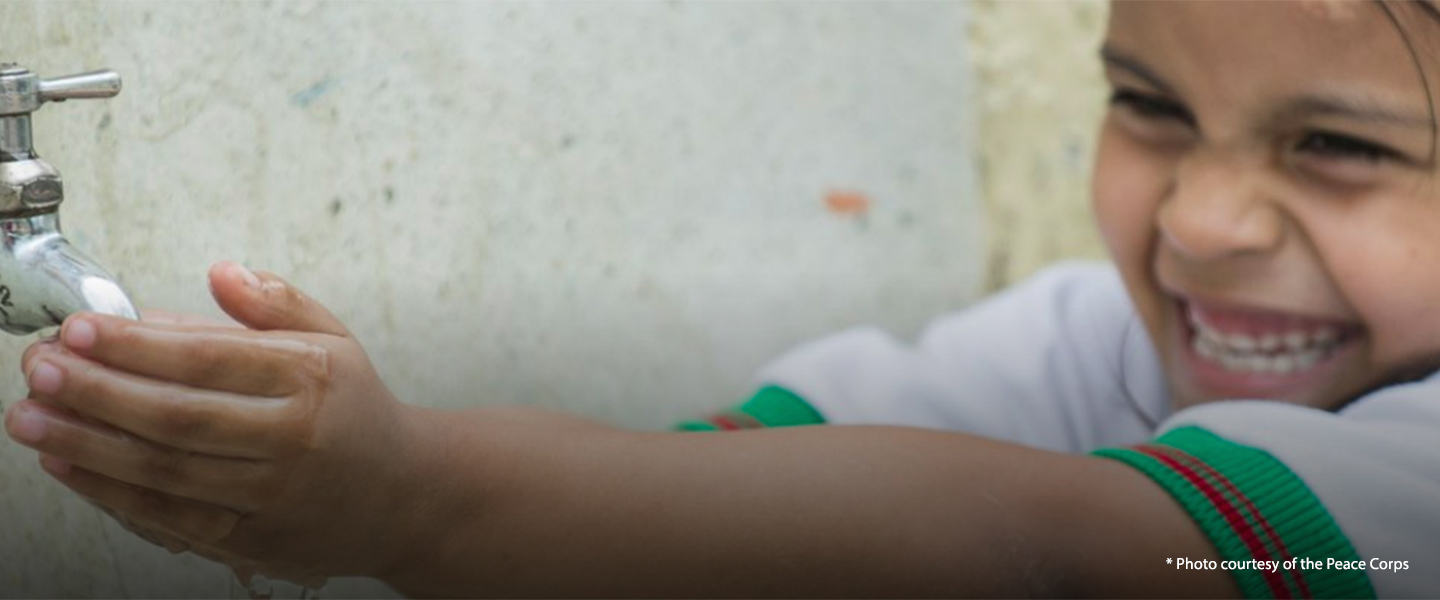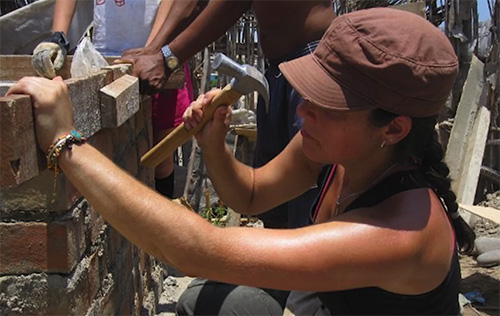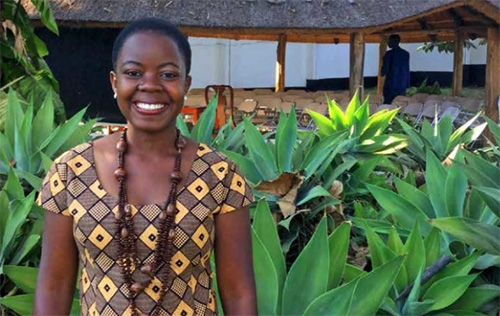On This Page
Overview
Fairfield University is pleased to collaborate with the Peace Corps as the only Jesuit university to offer a unique interdisciplinary preparatory program which prepares students for international development fieldwork and potential Peace Corps service. This program enables Fairfield University to reach more students with global opportunities, better prepare students with cultural competency skills, and encourage students to learn in non-traditional destinations. Related opportunities might include scholarships like the Fulbright, Critical Language Scholarship, and Gilman, as well as careers in the Foreign Service, Global Health, or Environmental Policy and volunteer programs like Global Health Corps, Teach for America, Americorps, or Jesuit Volunteer Corps.

The program concentrates on the following four core competencies:
- Training and experience in a work sector
- Foreign language proficiency
- Intercultural competence
- Professionalism and leadership
The program includes a diverse faculty who teach within the six Peace Corps sectors: education, health, environment, agriculture, youth in development, and community economic development.
Interested? For more information, please contact Fairfield University Peace Corps Prep Program co-director Julie Mughal, associate director for Humanitarian Action, Center for Social Impact at peacecorpsprep@fairfield.edu.
Testimonials
Ashley Toombs '07, Volunteer, Peace Corps Peru
Patience Mhlanga ‘14, Public Health Volunteer, Peace Corps Zambia
Sparks of Hope - Spring, 2020 Fairfield Magazine
Program Requirements
The Peace Corps (PC) Prep program at Fairfield will prepare students for international development fieldwork and potential Peace Corps service. To accomplish this, students will need to meet the following four core requirements:
- Training and Experience in a Work Sector: Students must complete at least three courses that align with one of the Peace Corps' six sectors and accumulate a minimum of 50 hours of volunteer or related work experience in that same sector, preferably in a teaching or outreach capacity.
- Foreign Language Skills: Requirements vary by placement region.
- Intercultural Competence: In order to meet this requirement, students will need to complete three approved courses or one-to-two courses plus substantive intercultural experience.
- Professional and Leadership Development: Peace Corps service and similar international development work opportunities are highly professional and selective. PC Prep requires three specific activities that will strengthen students’ candidacy for the Peace Corps, including their resume, interview skills, and leadership experience.
Training And Experience Requirements
Leveraging concrete knowledge and skills is central to on-the-ground international development work. Through Fairfield’s PC Prep program, students will begin to build a professional specialty, which will serve their career, whether or not they become a Peace Corps volunteer.
For PC Prep, students are required to complete at least three courses that align with a specific work sector. Students must also accumulate a minimum of 50 hours of volunteer or work experience in that same sector, preferably in a teaching or outreach capacity.
There are six sectors in which Peace Corps Volunteers serve—outlined below. Students will focus on one sector and complete at least three courses plus 50 hours of related experience in that sector.
Learn more about the six Peace Corps sectors:
Foreign Language Skills Requirement
Requirements vary by placement.
Most students must hone their capacity to interact professionally using a non-English language. Minimum course requirements vary by desired placement region as follows:
Latin America: Students indicating an intention to serve in Spanish-speaking countries must build strong intermediate proficiency, having completed two 200-level courses or have learned Spanish through another medium.
West Africa: Students indicating an intention to serve in French-speaking African countries must build proficiency in French or another Romance language, having completed one 200-level course or learned the language through another medium.
Everywhere else: Students indicating an intention to serve anywhere else do not have explicit language requirements to complete the program, but are encouraged to study a foreign language.
Students who are strong native speakers, or who can demonstrate fluency, who wish to serve in a country that speaks the same language are exempt from taking the Foreign Language Skills Requirement.
Intercultural Competence Requirement
3 approved courses or 1-2 courses + substantive intercultural competence
Engaging thoughtfully and fluidly across cultures begins with one’s own self-awareness. With this learning objective, students will deepen their cultural agility through a mix of three introspective courses in which they will learn about others while reflecting upon their own self in relation to others. The goal is for students to build their capacity to shift perspective and behavior around relevant cultural differences.
Students will take at least one of the following core courses:
- ANTH 1100: Intro Four-Field Anthropology
- ANTH 1110: Cultural Anthropology
- ANTH 1115 Cultures of Africa
- ANTH 1120 Islamic Societies and Cultures
- ANTH 3600 Anthropological Research Methods
- ENGL 1010- Intro Lit & Cultural Studies
- ENGL 1020 - Intro to Cont World Lit
- ENGL 3052: Cultural Studies Theory
- HIST 2242: Immigration, Race, Ethnicity
- INST 1050: People, Places & Global Issues
- LCST 3301: Justice and the Dev World
- POLI102 - Intro to Comparative Politics
- RLST 2335: Liberation Theology
- SOCI 1135: Race, Gender & Ethnic Relations
- MGMT 4320: Diversity in the Workplace
- PHIL 3360: Critical Race Theory
- POLI 2236: Politics, Race, Class, and Gender
Students will choose two additional electives from the list above or below:
- AETH 2276 - Ethical Dimension / Global Bus Practices
- AETH 2262 - Ethics and the Community
- AETH 2265 - Ethics in Education
- ANTH 1125: Sex, Gender and Sexual Orientation
- ANTH 2015: Refugees and Culture in the Modern World
- ECON 2120 Introduction to Environmental Economics
- EDUC0200 - Explorations in Education
- HIST 2270 - Hist / Global Humanitarian Action
- HIST 0280 - The West and the Middle East
- HIST 2289 - Modern Latin America 1800- Pres
- MG0385 - Managing People for Global Business
- MKTG 3312 - Global Marketing
- NS0330 - Community, Public, and Global Health Nursing
- PHIL 2240 - Intro to Asian Philosophies
- POLI 2251: Islam and Muslim Politics
- POLI 2252: African Politics
- PSYC 1110 - Dev Psychology for Non-Majors
- SOCI 1125 - Sociology of Religion
- SPAN 3271 - Hispanic Film
- SPAN 4359 - Cult, Civ, Lit / Spanish-American Caribbean Region
Is there another course in the catalog that you feel meets this requirement? Please discuss it with your PC Prep Coordinator.
If you would like to substitute a studying/volunteering abroad experience for one of the electives above, please discuss it with the PC Prep Coordinator. Examples may include: The Humanitarian Spring Break Trip to Abilene, TX to work with newly resettled refugees; an inter-session experience in Ecuador through Campus Ministry, etc.
Professional and Leadership Development Requirement
Resume and Interview Support + Leadership Experience
Peace Corps service and similar international development work opportunities are highly professional and selective. PC Prep requires three specific activities that will strengthen your candidacy for the Peace Corps (or any other professional endeavor). Students are required to:
- Have your resume critiqued by someone in the career center in your school or college.
(College of Arts & Sciences, School of Engineering & Computing, Dolan School of Business, Marion
Peckham Egan School of Nursing & Health Studies, or the School of Education and Human Development) - Attend a workshop or class on interview skills at the Academic and Career Development Center.
- Develop at least one significant leadership experience and be prepared to discuss it thoughtfully. For example, organizing a campus event, leading a work or volunteer project, or serving on the executive board of a student organization.
Faculty/Advisors
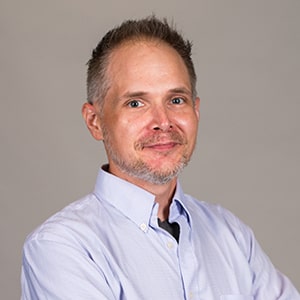
Michael Andreychik
Professor
Psychological & Brain Sciences
x2176
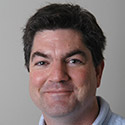
James Biardi
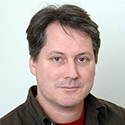
David Crawford
Professor
Sociology & Anthropology
x3454
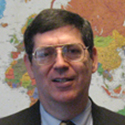
Patrick Kelley, MD, PhD
Visiting Assistant Professor
Biology
x3775
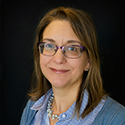
Julie Mughal
Associate Director
Humanitarian Action
Center for Social Impact
x3505
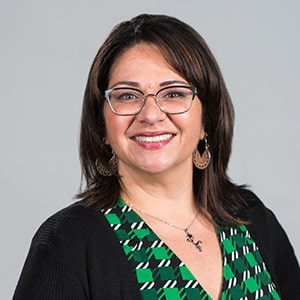
Jessica Alicea-Planas
Associate Professor
Nursing
x2738
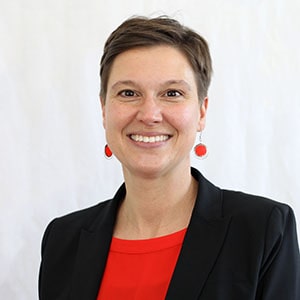
Melissa Quan
Director of the Center for Social Impact, Fairfield University

Melissa Quan, EdD
Director of the Center for Social Impact, Fairfield University
Melissa Quan, EdD, is director of the Center for Social Impact at Fairfield University where she has worked since 2002. As director, Dr. Quan leads the strategic growth and development of academic community engagement. Dr. Quan completed her master’s degree in education at Fairfield University in 2005 and earned a doctorate in education from the University of Massachusetts Boston in 2021. The International Association of Research on Service Learning and Community Engagement recognized her scholarship with the Dissertation Award in 2021. Dr. Quan has several publications that focus on professional development within the field of higher education community engagement, institutional change, and community-engaged teaching and learning. Dr. Quan is an alumna of the Jesuit Volunteer Corps (1998-1999) and currently serves on the board of directors with RYASAP (Regional Adult and Youth Social Action Partnership). She is a recipient of the Lucy Katz Woman of the Year Award (2016) and the Martin Luther King Jr. Vision Award (2012), both from Fairfield University, for her commitment and work to promote social justice. She lives in Fairfield, Conn., with her husband, two children, a parent, and a pup.
Peace Corps Volunteers

Luke Fain ’17
Luke graduated with a degree in Environmental Studies and currently serves as an agriculture volunteer for the Peace Corps in rural Ethiopia. While at Fairfield, Luke was a member of LEAF, Students 4 Social Justice, and co-president of the Outdoors Club. His service with the Peace Corps consists of improving food security and nutrition by encouraging and assisting families in building small, at-home gardens and raising and properly caring for small animal husbandries such as chickens and bees. Ethiopia has over 50 languages, and Luke is currently learning two of them: the national language and the local language of Keffa where he lives. After his time in the Peace Corps, Luke is interested in hiking the Appalachian Trail and spreading the word on the wonders of Ethiopia - a country he’s grown to love and call home.
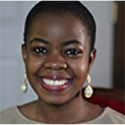
Patience Mhlanga ’14

Patience Mhlanga ’14 currently serves as a Peace Corps Health Volunteer in rural Zambia. She lived in Zambia as a refugee for five years and was excited to be able to return to Zambia to serve in the Peace Corps. While at Fairfield, Patience tutored English and mentored middle school students in Bridgeport through the AmeriCorps Program. She then served full-time as an AmeriCorps Volunteer in Minnesota through Minnesota Alliance with Youth organization. While in Minnesota and after discernment, Patience decided to pursue Theology at Duke University. From there, she joined the Peace Corps. In Zambia, she focused primarily on HIV and malaria prevention, nutrition, and sanitation. Patience also worked with women to develop activities to generate income for themselves and their families. Patience is a Paul D. Coverdell Fellow at George Washington University a Master’s in Public Health.
Peace Corps Alumni
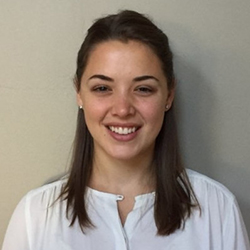
Emma Cannon ’14

A JUHAN fellow at Fairfield, Emma Cannon ’14 double majored in international studies and Spanish with a focus on Latin America. Emma was a Peace Corps volunteer in Guatemala for two years, where she worked in support of the Healthy Schools Project, a national initiative that aims to improve basic health and hygiene in primary school students in rural Guatemala. She received the JUHAN Humanitarian Citizenship Award in 2014. She currently works at University Research Co., LLC (URC) & Center for Human Services (CHS) Support Zika Response activities in Guatemala, Honduras, El Salvador, Dominican Republic, Nicaragua, Paraguay, Peru, Ecuador and Jamaica. She is currently pursuing a degree in nursing.

